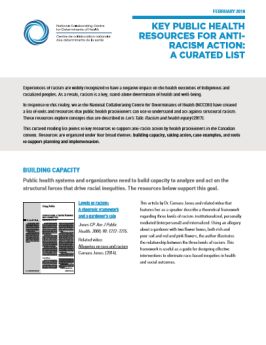NCCDH staff becoming anti-racist through informed dialogue: 1 of 2
In the summer and fall of 2016, the National Collaborating Centre for Determinants of Health (NCCDH) initiated an all-staff process to become more anti-racist. My first “Becoming anti-racist” post from March 2017 describes the NCCDH’s intention to hold monthly learning discussions and introduces the circle way method that we adopted. My more recent entries report on our discussions and the resources we used to help us learn.





